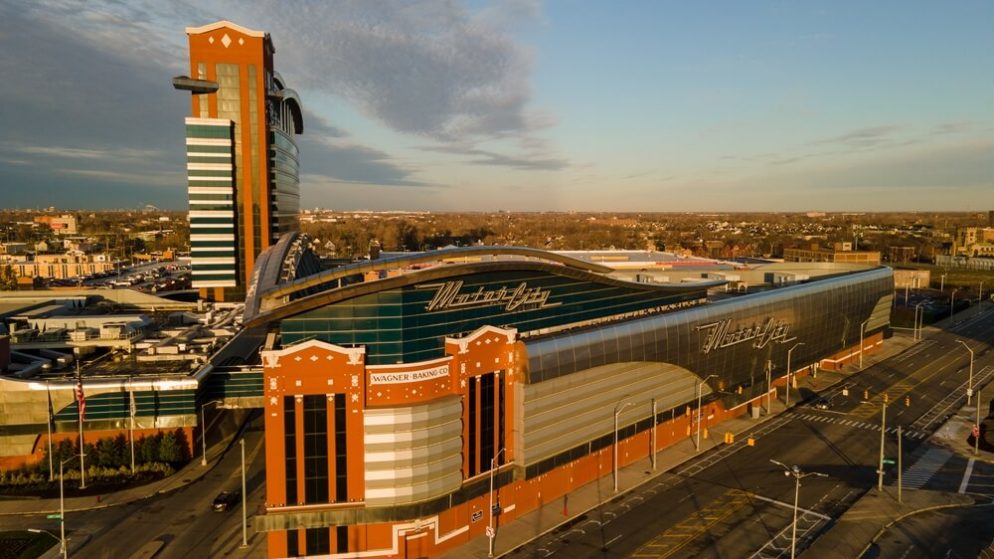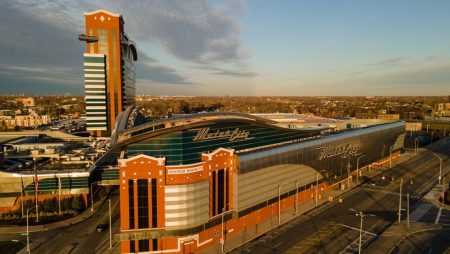

The casino operators in Detroit have reported a decline in the revenues accumulated from gambling operations in the state. According to records made available by the MGM Grand Detroit, the management of MotorCity Casino and Penn National Hollywood Casino located at Greektown have gained less income compared to what the same establishments managed in June of 2021. The YoY decline has been realized and so has the comparison with the past month.
Even though there was a decline in performance among all the online casinos that have operations in Detroit, MGM still managed to retain the leading position among all operators. The casino commands a 49% share of the state market, fifteen steps ahead of MotorCity which commands 34% followed by Greektown which has a market share of 17%. The fact that MGM is a pacesetter in the gambling industry around the US might be a huge contributor to the success of the brand in MI.
If we consider the monthly performance of the type of games that casino players indulge in, it has emerged that slot titles and table games brought in $98.2m in the month of June. Like the overall figure, this too was a decline that accounted for a 7.2% decline. The top performer in this category of operation was MGM that managed to rake in revenue of $48.3m, a year on year increase of 4.3%. On the flipside, the revenue situation at MotorCity declined by 9.8% to settle at $33.5m, whereas the Greektown recorded $16.4m, which translated into a revenue drop of 26.6%.
Altogether, the 3 Detroit casinos paid gaming taxes amounting to $8.0m to the state government. In addition to this, the casinos also paid wagering taxes and development agreement payments to the City of Detroit amounting to $11.7m. This is obviously a very small proportion of the revenues paid to the casinos to handle. With this in mind, the casino industry in Michigan appears to be booming amid the current decline.
As far as retail sports’ betting is concerned, the value of the qualified adjusted gross receipts (QAGR) managed to reach $448,703, a decline of 80.5%. The performance of the sector in June 2021 was quite impressive at $2.3m, players having placed bets worth $22.4m. In this category, the Hollywood Casino situated in Greektown emerged top having acquired $305,023 in QAGR operations. The casino submitted $17,802 in way of gaming taxes to the state authorities for the month of June in addition to $21,758 in wagering taxes and development agreement payments to the City of Detroit.
What we cover
Looking back to similar periods
Even though the Detroit casino operators are discouraged at the revenues they are currently witnessing, this is not the first time that their businesses have suffered this plight. In 2020, the cumulative revenue took a dip of 59.3% at a time when business was closed to allow the wave of the pandemic to blow over. With the first lockdown announced around mid March, the three main operators; Greektown Casino, MotorCity Casino and MGM Grand Detroit struggled to remain profitable throughout that season. What did the loss look like for the companies then?
For the management of the MGM Grand, the decline was found to be 40% when compared to the operator’s performance in 2019. The same scenario faced MotorCity since it experienced a 41% slide in business, only managing to raise $102.6 million from $250.5 million for that period. For Greektown, the drop was also 41% having collected $70.1 million from their customers down from $169.8 million the previous year.
Same as is the narrative now, the three main casinos of Detroit have been quite dominant. Due to the fact that there was decline on handles, it only makes sense that the taxes collected by the city would also go down. The greatest victims when this happens is the children in public schools around the city since those revenues have been permanently committed to the School Aid Fund.
For the first six months of 2020 during which time the pangs of the pandemic were fierce, the total revenue from the three main Detroit casinos was $299.2 million having declined by 59.3% from the $735.4 million recorded for the first half of 2019.according to reports published by the Michigan Gaming Control Board, the state received only 8.1% of a casino’s net winnings while the city of Detroit got 10.9%. Times were difficult then because the months of April, May, and June only yielded about $44 million dollars for the city of Detroit.
After slightly over 100 days of closure, the Michigan Gaming Control Board came up with a reopening schedule for Detroit casinos. Initially, casinos were supposed to operate at 15% legal capacity and scale up gradually to full capacity as per the directive of the CDC.
A section of Michigan state gambling experts now believe that a big chunk of the gambling revenue finds its way into tribal casinos. With no obligation to state regulation on levies and licenses, the authorities in Michigan have no control over this section of the market. There are a total of 23 tribal casinos in the state and they operate as per their own schedule. The CEO of FireKeepers Casino Hotel in Battle Creek, Kathy George, has been vocal about following the directives of the tribal council in conducting business.
Final Thoughts
The city of Detroit has run into a loss trap in the month of June 2022 but this is nothing compared to what the market faced in 2020. Even for a layman, it is easy to see that there is a loophole as far as control of regulation is concerned. The task at hand is therefore for the city administration to strategize on ways of working with the tribal council for mutual benefit. As the situation sands, the three Detroit casinos are over tasked with the burden of funding the city’s revenues allocation.

